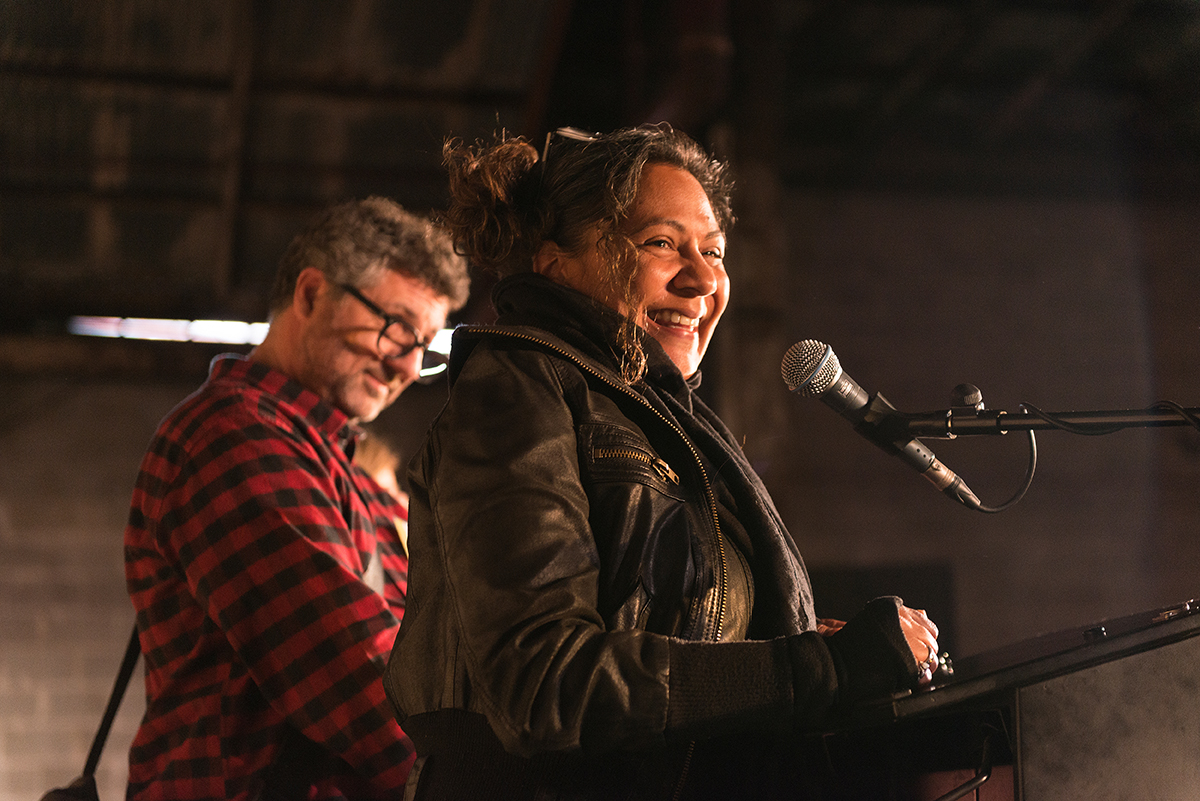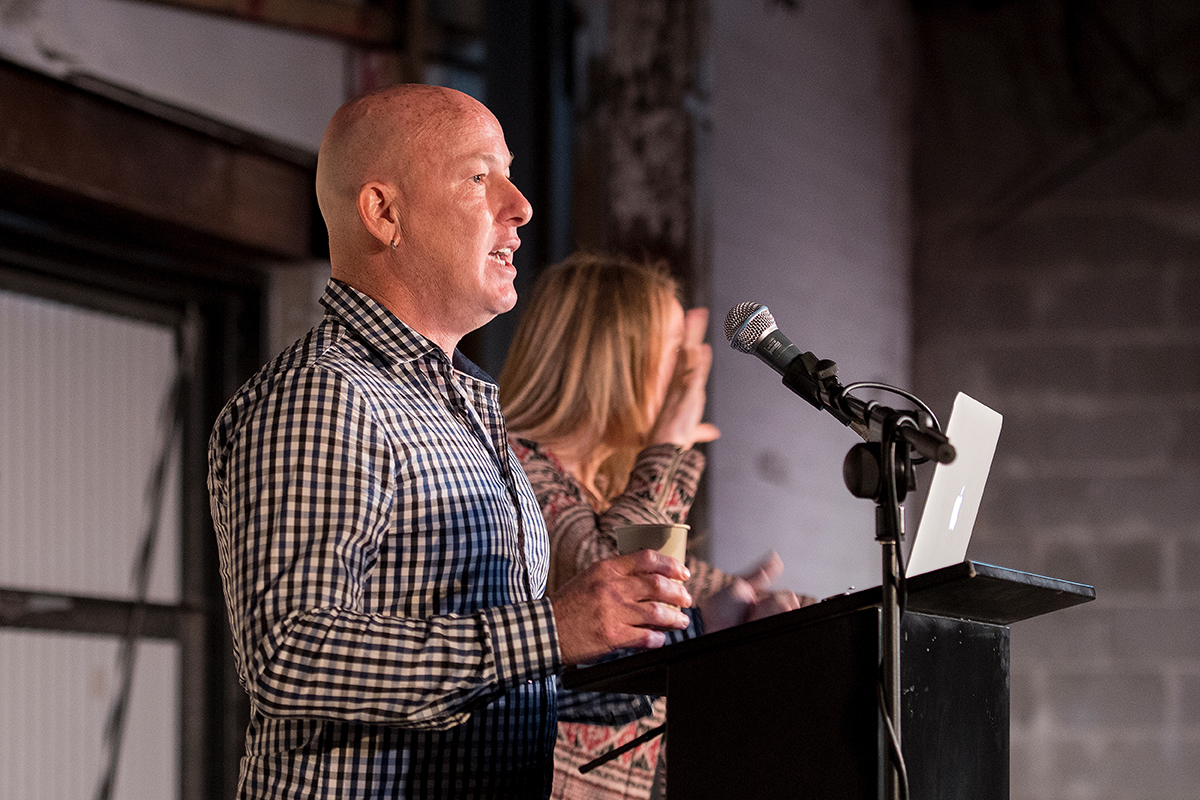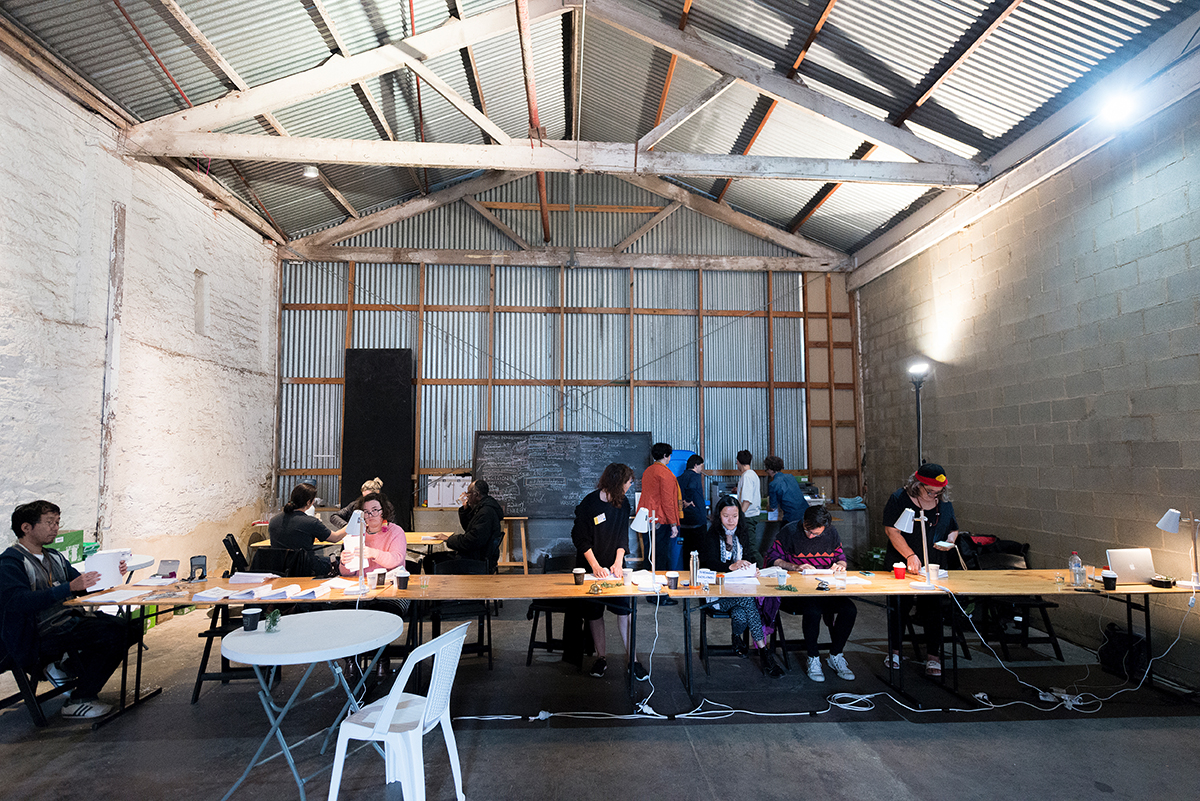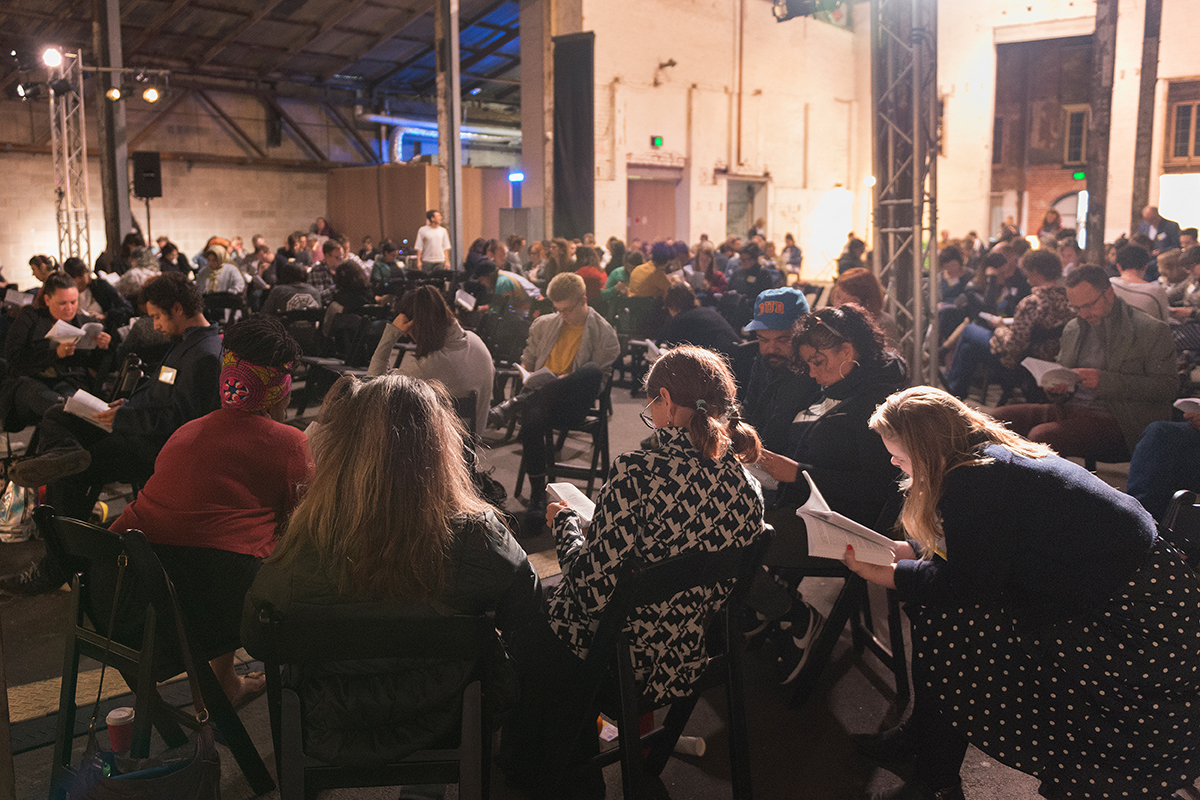
Australian Theatre Forum 2017: Tough times, cautious hopes
Spread over three days and two venues — the Adelaide Festival Centre, including the Space Theatre and Dunstan Playhouse, and the Queen’s Theatre in Adelaide’s west end — and presented as part of the 2017 OzAsia Festival, the biennial Australian Theatre Forum was held in Adelaide this year for the first time, attracting nearly 300 delegates from every state and territory (and one from Canada). In keeping with previous forums (the last was held in Sydney) co-curators Alexis West and Steve Mayhew, in their program note, described this year’s conversations as “an opportunity for a sector and those present to find out more, to feel connected, to rally, to identify, to feel heard, to impart knowledge, guidance and much more.”
Real diversity
In low-key introductions, West called for utopian visions, tolerance, diversity and access while Mayhew reflected on the “devastated and devastation” of the last two years [Vitalstatistix Director Emma Webb’s paper incisively revealed the extent of the damage. Eds], describing ATF 2017 as “a love letter, a suicide note and a freshly written to-do list.”
Some numbers give a sense of the diversity of the forum’s delegates, who self-identified as Aboriginal and Torres Strait Islander (31), culturally and linguistically diverse (47), disabled (25), deaf but not disabled (3), them or they (5), LGBTQI+ (58), regional (70) and young or emerging (78). Perhaps, as I heard a few delegates grumble over the three days, the only underrepresented group was the major performing arts companies.

Jacob Boehme, Australian Theatre Forum 2017, photo Ben Searcy
Learning to listen
Each day saw a mix of events adding up to a more conversational approach than in previous forums — fewer panels, Q&As and roundtables, and more informal discussions, surrounded by scattered keynotes, sector updates and “considered responses.” Many of the conversations were organised around a model — a little unwieldy at times — whereby an inner circle of chairs was reserved for those who wished to speak, and an outer circle for those who preferred to listen. The importance of listening, flagged by the forum’s motto, “listen, examine, speak, celebrate,” became a recurring theme. Director and dramaturg Sarah Dunn, in her day one considered response, told us “I don’t know; I’m listening” were “words to speak over and over,” while, in what was billed as a “provocative pep talk” on day two, South Australian Dignity Party representative Kelly Vincent asserted that there is “no such thing as voiceless groups — just stories we haven’t learned to listen to yet.”
Sharing in silence
Additionally, over the course of the three days a “keynote project” unfolded, an iteration of Performance Encyclopaedia by Toronto-based experimental performance collective Public Recordings. The project saw six Australian writers collaborate with co-creators Tomoyuki Arai, Shannon Cochrane, Ame Henderson and Evan Webber to create, print and bind a text featuring reflections on keywords selected by the writers before the forum, as well as responses to the various conversations. The performance itself took place on the forum’s final day during which delegates read the text in silence for one hour before it went “out of print,” providing a welcome moment of shared experience and stillness within a crowded, often intense program designed to be navigated individually.

Printing of Performance Encyclopaedia, Australian Theatre Forum 2017, photo Ben Searcy
Timeliness and its limits
The theme of this year’s forum was “About Time,” aptly chosen for its suggestion of live performance’s temporality but more significantly for its intimations of change, too long delayed, perhaps finally having come. Conversations around diversity and the problem of cultural homogeneity in arts practice and governance have figured heavily, albeit sometimes divisively, at events of this kind for some time, but their deep integration in this year’s program felt new, a sign perhaps of an emerging paradigm. In her day one keynote responding to the theme “Our Status Quo,” Indigenous designer Linda Kennedy called for a decolonisation of our theatre, an idea that manifested throughout the forum in conversations that touched on non-Western dramaturgies, colonialist myth-making and best practice for arts organisations working with Indigenous artists who have inherited a legacy of dispossession. In his day three keynote, “Possibilities and Futures,” Indigenous performer and curator Jacob Boehme urged artists and organisations to embrace “60,000 years of dramaturgy rather than performed culture on stage.”
There were designated safe spaces for First Nations and people of colour, and for women (a third, for LGBTQI+ people, was also mooted) while the forum was bookended by irreverent, politically charged opening and closing ceremonies led by Aunty Katrina Karlapina Power, the first, memorably, held at dawn on the Festival Centre’s Bistro balcony and concluding in several dozen sleepy-eyed delegates dancing to Yothu Yindi’s “Treaty” as the sun rose over the Torrens River/Karrawirra Pari. If the framing of the forum in this way signalled a timely corrective to the predominance of straight white male perspectives at previous national theatre sector gatherings — one need only glance back at the first ATF program in 2009 to see how much things have changed — then it perhaps came at a cost. The political tenor of many of the conversations risked exhausting and discouraging us, and failing to acknowledge the progress — however tenuous or incomplete — that has taken place since previous forums.

Reading of Performance Encyclopaedia, Australian Theatre Forum 2017, photo Ben Searcy
Making room for optimism
In counterpoint to the ‘heaviness’ of these conversations, others were conducted in optimistic, even visionary terms. In his keynote, Forest Fringe’s Andy Field exhorted us to take care of ourselves and each other, and to conceive of the works we make as “versions of the world we want to live in” and as “fragments of utopia.”
In her sector update, the Australia Council for the Arts’ Marion Potts, while acknowledging “undeniable inequities” in the states, the ongoing issue of gender parity and the risk aversion of the major companies, nevertheless insisted we have “a responsibility to be hopeful.” Drawing on a “desktop analysis” of 2018 theatre company seasons, she cited the burgeoning of a more nuanced conversation around regional performance, the positive reception of Australian work overseas and the “pushing up” of small to medium companies as reasons for hope.
I also detected a utopian strain in the conversations I joined, as well as a desire to embody hope in our processes, practices and politics. A range of both individual and collective measures to address the global ecological crisis were canvassed in a session titled “Imagination for Adaptation,” co-facilitated by producer Pippa Bailey who argued that, while individual artists were “doing great things” in this space, the cultural sector “has its head in its hands.” We discussed how cultural organisations could reduce their carbon footprint and mooted the creation of a body that could oversee this. In “The Spaces We Create to Create,” a conversation facilitated by the Malthouse’s Mark Pritchard, State Theatre Company of SA’s Elena Carapetis and Black Swan’s Jeffrey Jay Fowler, positive noises were made about improvements in diversity, access, and the representation of women in these companies, as well as their relationship to smaller arts organisations and artists working in the independent sector.
Any single view of a program as far-ranging as this forum’s is bound to be partial and highly subjective. It’s also true, as is often observed of such events, that many of the most interesting conversations happen informally, in the cracks of the official schedule — the meal breaks and after hours meet-ups when the pressure is off and guards are lowered. Unlike in 2015, too, there was no grand concluding gesture (however symbolic) at this year’s ATF, no lens with which we could look back on the previous three days with a sense of unified purpose. Instead we were left with echoes. As Jacob Boehme, looking forward two years in his keynote, implored us “to be, embody, and to do,” I found myself thinking back to UK performance artist Jo Bannon’s presentation on the first day, and her provocation that seemed to ring throughout the forum: “How can we unfuck the world?” By talking, yes, but by doing too, and through the embodiment of a politics of the radical.
–
2017 OzAsia Festival: Australian Theatre Forum 2017, About Time, curators Steve Mayhew and Alexis West, producer Theatre Network Australia (TNA), Space Theatre, Dunstan Playhouse, Queen’s Theatre; Adelaide, 3-5 Oct
Top image credit: Steve Mayhew, Alexis West, Australian Theatre Forum 2017, photo Ben Searcy






